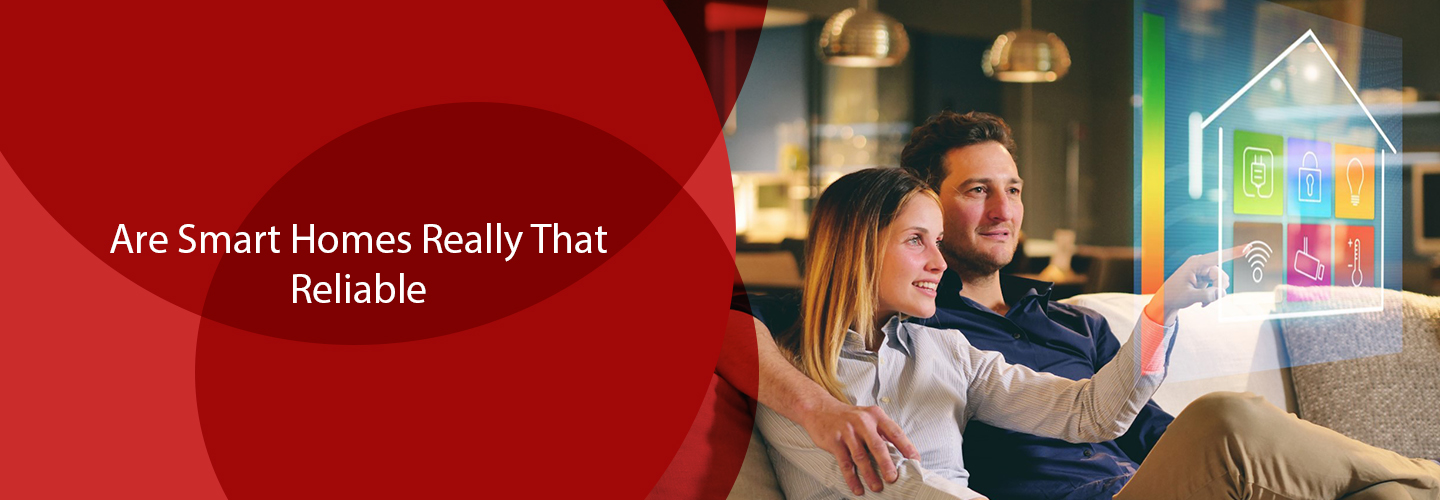Smart Homes are becoming increasingly common to find across the United States. More so because there are a plethora of smart home devices available in markets all around, along with these devices priced at very affordable and reasonable rates. So why wouldn’t anybody convert their home into a Smart Home when it is so easy to do so now?
With technology progressing as time passes, there are always great benefits to enjoy of these technological advancements. However, we know that just like with everything in general, technology has its great feats but there is always a downside to things. Similarly, the question of the reliability of smart homes arises here too.
What to Look Forward To With Smart Homes
Here are some overall benefits that you can look forward to with smart home devices and with having a smart home.
Energy Efficiency
If there is one thing smart homes and smart devices are great for, its energy efficiency. A lot of smart devices work and also allow for energy saving, with their remote control features via mobile phones, motion sensing, and setting timely schedules for devices to follow. Smart thermostats are a great example of such devices. Some smart thermostats even feature the technology that quite literally learns your preferred temperatures and adjusts itself accordingly throughout the day.
Safety & Security
Smart devices in general are always looked upon for the automation and energy efficiency that they bring with them. But what we usually miss out on is the fact that certain smart devices are great for providing you with additional home security. Video doorbells, smart cameras, smart door locks are the perfect examples of smart devices that provide you with extra home security that can be very useful.
With video doorbells and smart cameras users can view the live video footage 24/7 in HD, along with a history backup to preview, with many variants. There is also the advantage of night vision so you can see clearly in the after-dark hours. And the greatest part of all of this is the mere fact that the video footage of the two are accessible, along with the control of the entire device itself, right from your smartphones.
The Ease of Convenience
Smart devices are accessible remotely and digitally, connecting to the Wi-F network and through our smartphones and tablets. That gives you access to the said smart devices from practically wherever you are; whether it is while you’re at home, or away on vacation – as long as your device is connected to a Wi-Fi source you can control it from anywhere.
There is also the feature of setting schedules with certain smart devices like smart lights, thermostats or smart sprinklers. Schedules allow your devices to operate according to your personal settings, so you won’t have to constantly worry about whether you locked the front door or turned off the foyer lights before getting into bed.
Are Smart Homes Always This Perfect?
Your smart home may be something to be proud of because who wouldn’t be excited about remote and voice control devices around their home? But just like everything has two sides, smart homes too have a few factors that should be taken into consideration before you take that step.
Price of Smart Devices
Although smart devices are quite reasonably priced, the way the price point sits with different income groups matters. Students may not be able to afford a lot of smart devices, and may resort to buying cheaper ones for instance as compared to families or working individuals.
Some smart devices like the Google Nest Mini Smart Speaker that retail for $49 are cheaper than let’s say the Samsung smart refrigerator range that retails from anywhere between $1000 to $3500. Likewise, smart bulbs on average cost around $20 per bulb – installing multiple around your home would obviously prove to be costly.
The one thing about smart devices is that though they may be expensive they are long-lasting, and their features, especially that of energy efficiency which can lower your utility bills with time, only proves that installing these devices is like an investment into your home.
Internet Connectivity
The basis of how these smart devices work is that they connect to the home Wi-Fi network; configuring your device after installation requires you to connect it to the Wi-Fi. Without connectivity to the Wi-Fi, the devices are pretty much useless because the purpose of smart devices is to provide automation and have remote control and voice-enabled access to your devices.
This means you would require a stable, seamless internet connectivity around your home to avoid any lags in the operation of smart devices within your home. Finding the right internet bundle with the correct amount of speed and data that can not only support the internet usage for everybody at home but also simultaneously be able to support smart devices too. Users may also have to install routers in other rooms or levels of a home if internet connectivity is weak in certain areas.
So to answer the question of whether if a smart home or smart home devices are reliable or not, it really depends on every individual. People may accept technological changes with open arms, while some may be alright with how old school their life is – it really depends on a person’s comfort level whether they are ready to adapt to the change. but otherwise, like everything in this world, smart homes have their benefits and their drawbacks, it’s on how you perceive them and the technology they bring about with them.













